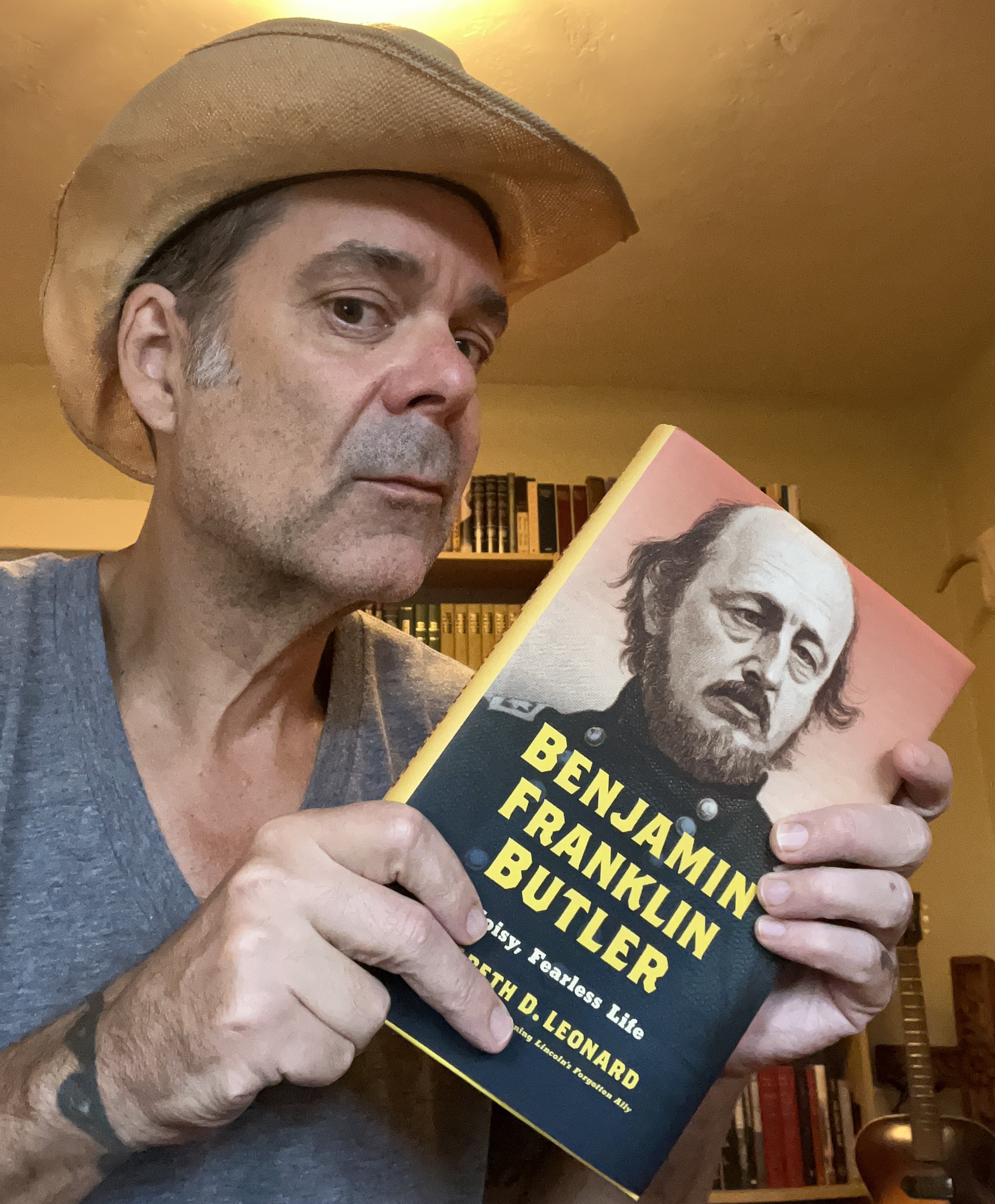Beyond the Beast - A New Book on Benjamin Franklin Butler
Elizabeth D. Leonard, Benjamin Franklin Butler: A Noisy, Fearless Life (UNC Press, 2022).
Union General Benjamin F. Butler gets a fair amount of coverage in my Civil War class. Of course, we discuss his May 1861 Ft. Monroe “contraband of war” policy in relation to the long road to emancipation. We get to his May 1864 Bermuda Hundred Campaign against Richmond, where his Army of the James stalled out against troops under Confederate Pierre Gustave Toutant Beauregard. But my students tend to respond most to the infamous New Orleans 1862 “Woman Order” aka General Order #28, where Butler decreed that any woman disrespecting a Union soldier would be treated as a “woman of the town plying her avocation.” In other words, he called the belles of New Orleans prostitutes. The Confederate populace responded with acrimony, they gave him a fun new nickname: the “Beast,” and proceeded to manufacture some chamberpots bearing his image. Good stuff, which of course gets a laugh every time.
Leonard thinks that we need to take another look at Butlers storied career - and I would tend to agree…it’s generally a solid plan to review well-worn takes on famous figures, and I for one am pleased that she took Butler on. It turns out, there’s lots more to the guy, especially when it comes to Reconstruction era politics - what we tend to overlook. For example, he introduced a Constitutional amendment to grant women the right to vote way before it was politically prudent to do so, earning him the respect and support of suffragists such as Virginia Woodhull. And he was among the strongest advocates for black Americans in the federal government, assisting them when necessary and advancing legislation to protect freepeople and their white allies.
I think an important take-away here is that individuals, no matter how one-dimensional some might paint them, can be vastly complex if one is willing to peel back the layers in the historical record. Butler is no exception. He is at once annoying, brilliant, humorous, and ambitious. He marched to his own drummer (so to speak) and rejected mindless Republican Party loyalty when the party strayed from his objectives. And…he was undeterred from taking swipes at his detractors who might have advanced their own positions by criticizing Butler’s generalship. As such, he dedicated much of his 1000ish-page memoir to a defense of a somewhat spotty (and often controversial) military record.
There’s lots here that I can bring up in class. For example, I found it fascinating that this Massachusetts politician could unwaveringly support radical policies…even when it became unfashionable to do so after years of polarizing reconstruction politics. Further, I was equally intrigued by his lukewarm (at best) response to reconciliatory trends post-Reconstruction. As it turned out, he wasn’t that into reestablishing amity with his former Confederate enemies. So, he bucked that popular trend too. My gut tells me, after reading this biography, that he really didn’t give a shit.
I am left thinking of Butler’s life as noisy indeed. Here’s a guy whose ideas, opinions, and politics evolved (imagine that) over time…a cunning partisan when need be, who meticulously and carefully positioned himself in the context of the divisive issues of the day. If politics is the art of the possible, as someone famous once said, Butler certainly embraced the possibilities. He swirled and maneuvered through political allegiances and alliances, and was not afraid to do something as drastic as switch political parties, much to the bewilderment of his contemporaries. And as he neared the end of his political career, he made bold statements about having always held firm to Union principles of equality of privileges to all men under the law. He claimed that the world changed around him, not the other way around. Okay fine, I’m not sure I buy this, but it’s great copy. In the end, I think it is fair to say that Butler had brass, and there’s something to admire about that.
With compliments,
Keith
